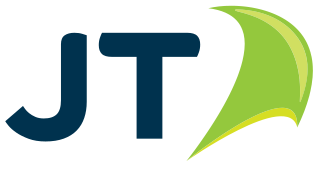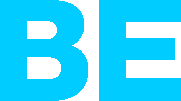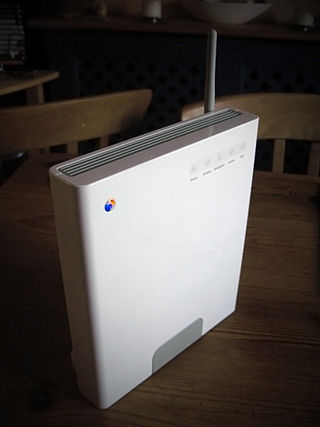Related Research Articles
BT Group plc is a British multinational telecommunications holding company headquartered in London, England. It has operations in around 180 countries and is the largest provider of fixed-line, broadband and mobile services in the UK, and also provides subscription television and IT services.
Telecommunications in Ireland operate in a regulated competitive market that provides customers with a wide array of advanced digital services. This article explores Ireland's telecommunications infrastructure including: fixed and mobile networks, The voice, data and Internet services, cable television, developments in next-generation networks and broadcast networks for radio and television.

JT Group Limited is the parent company of several subsidiaries including Jersey Telecom Limited and Wave Telecom Limited. Jersey Telecom is the former monopoly operator in the Bailiwick of Jersey. JT provides telecommunications, Internet access and other services, mostly within the Channel Islands.
KCOM Group is a UK communications and IT services provider. Its headquarters are in the city of Kingston upon Hull, and it serves local residents and businesses with Internet and telephony services. It was listed on the London Stock Exchange but is now privately owned by Macquarie Group.

StarHub Limited, commonly known as StarHub, is a Singaporean multinational telecommunications conglomerate and one of the major telcos operating in the country. Founded in 1998, it is listed on the Singapore Exchange (SGX).
The 21st Century Network (21CN) programme is the data and voice network transformation project, under way since 2004, of the UK telecommunications company BT Group plc. It was intended to move BT's telephone network from the AXE/System X Public Switched Telephone Network (PSTN) to an Internet Protocol (IP) system. As well as switching over the PSTN, BT planned to deliver many additional services over their new data network, such as on-demand interactive TV services.
BT Broadband is a broadband service offered by BT Consumer; a division of BT Group in the United Kingdom. It was formerly known as BT Total Broadband, BT Yahoo! Broadband and BT Openworld. With the introduction of BT Infinity, the Broadband package now refers to the legacy ADSL broadband products, such as ADSL Max and ADSL2+.

Be Unlimited was an Internet service provider in the United Kingdom between 2004 and 2014. Initially founded as an independent company by Boris Ivanovic and Dana Tobak in 2005, it was bought by Spanish group Telefónica Europe in 2006 before being sold on to BSkyB in March 2013 in an agreement which saw BSkyB buy the fixed telephone line and broadband business of Telefónica Europe which at the time traded under the O2 and BE brands. The deal saw BSkyB agree to pay £180 million initially, followed by a further £20 million after all customers had been transferred to Sky's existing business. The sale was subject to regulatory approval in April 2013, and was subsequently approved by the Office of Fair Trading on 16 May 2013.

Virgin Media Limited is a telecommunications company from Britain, founded in 2007, which provides telephone, television and internet services in the United Kingdom. Its headquarters are at Green Park in Reading, England. It is owned by Virgin Media O2, a 50:50 joint venture between Liberty Global and Telefónica.

Fiber to the x or fiber in the loop is a generic term for any broadband network architecture using optical fiber to provide all or part of the local loop used for last mile telecommunications. As fiber optic cables are able to carry much more data than copper cables, especially over long distances, copper telephone networks built in the 20th century are being replaced by fiber.
Openreach Limited is a company wholly owned by BT Group plc, that maintain telephone cables, ducts, cabinets and exchanges that connect nearly all homes and businesses in the United Kingdom to various national broadband and telephone networks. They were established in 2006 following an agreement between BT and the UK's telecoms regulator, Ofcom, to implement certain undertakings, pursuant to the Enterprise Act 2002, to ensure that rival telecom operators have equality of access to BT's local network.
Sky Broadband is the consumer internet service offered by Sky UK in the United Kingdom.

The BT Smart Hub is a family of wireless residential gateway router modems distributed by BT for use with their own products and services and those of wholesale resellers but not with other Internet services. Since v 5 Home/Smart Hubs support the faster Wi-Fi 802.11ac standard, in addition to the 802.11b/g/n standards. All models of the Home Hub prior to Home Hub 3 support VoIP Internet telephony via BT's Broadband Talk service, and are compatible with DECT telephone handsets. Since the Home Hub 4, all models have been dual band.
Internet access is widely available in New Zealand, with 94% of New Zealanders having access to the internet as of January 2021. It first became accessible to university students in the country in 1989. As of June 2018, there are 1,867,000 broadband connections, of which 1,524,000 are residential and 361,000 are business or government.
The Internet country code top-level domain (ccTLD) for Italy is .it and is sponsored by Consiglio Nazionale delle Ricerche. The .eu domain is also used, as it is shared with other European Union member states.

The United Kingdom has been involved with the Internet throughout its origins and development. The telecommunications infrastructure in the United Kingdom provides Internet access to homes and businesses mainly through fibre, cable, mobile and fixed wireless networks, with the UK's 140-year-old copper network, maintained by Openreach, set to be withdrawn by December 2025, although this has since been extended to 31st January 2027 in some areas due to reasons including panic alarms in sheltered housing needing a persistent connection which can't be guaranteed with internet-based DECT systems.
Easynet Connect was a UK-based Internet service provider. The Easynet Connect brand was founded on 7 January 2008 to focus on small-to-medium size companies with 11-249 employees. Easynet Connect’s core focus was as a business ISP, providing Internet access connectivity, colocation services and hybrid cloud computing services to small businesses and resellers in the UK. It was headquartered in London, with customer service and hosting centres in London and Somerset.

Broadband is a term normally considered to be synonymous with a high-speed connection to the internet. Suitability for certain applications, or technically a certain quality of service, is often assumed. For instance, low round trip delay would normally be assumed to be well under 150ms and suitable for Voice over IP, online gaming, financial trading especially arbitrage, virtual private networks and other latency-sensitive applications. This would rule out satellite Internet as inherently high-latency. In some applications, utility-grade reliability or security are often also assumed or defined as requirements. There is no single definition of broadband and official plans may refer to any or none of these criteria.
In Northern Ireland over 80% of the population has access to the internet, with 9 in 10 people having an internet connection in the home.
Andrews & Arnold Ltd is an Internet service provider based in Bracknell, England. Launched in 1998, the company serves businesses and home users.
References
- ↑ BT Infinity Product Page BT Retail, accessed 2012-04-21
- ↑ Sebastian Anthony (19 June 2015). "Only 1 percent of "up to 76Mbps" customers actually get 76Mbps from UK ISPs". arstechnica.co.uk. Ars Technica UK. Archived from the original on 20 June 2015. Retrieved 20 June 2015.
- ↑ "Broadband name change and average speeds". BT. Archived from the original on 5 October 2019. Retrieved 5 October 2019.
- ↑ Superfast Broadband Programme Update, BT, published June 2009, accessed 2010-10-27
- ↑ BT launches new Infinity broadband service V3, published 2010-01-21, accessed 2010-10-27
- ↑ BT launches BT Infinity superfast broadband at a competitive price Archived 17 March 2010 at the Wayback Machine BT, published 2010-01-21, accessed 2010-10-27
- ↑ BT Infinity Fibre Optic Broadband Comparison, accessed 2010-10-27
- ↑ "BT Help | Get support with BT products and services".[ permanent dead link ]
- ↑ "Superfast".
- ↑ "Broadband". www.btwholesale.com. Archived from the original on 2 September 2012.
- ↑ Race to Infinity Archived 8 November 2010 at the Wayback Machine Retrieved 11 January 2011
- ↑ "BT broadband race winners announced", BBC
- ↑ "WE WON! Top in the UK for Rural Broadband!" Archived 7 January 2011 at the Wayback Machine , Whitchurch.org.uk
- ↑ "…and now we WIN £5000!" Archived 23 July 2011 at the Wayback Machine , Whitchurch.org.uk
- ↑ "BT Expands Free UK Superfast Broadband Upgrade from 6 to 10 Communities", ISPreview
- ↑ "BT announces 163 new fibre exchanges" Archived 30 March 2013 at the Wayback Machine , Techbeast.net
- ↑ Updated 20:23 23 November 2012 by Chris Smith (23 November 2012). "BT trialling 10-gigabit per second broadband in Cornwall". T3. Retrieved 4 July 2013.
{{cite web}}: CS1 maint: numeric names: authors list (link) - ↑ "BT reveals latest phase of fibre roll-out". Btplc.com. Archived from the original on 4 March 2016. Retrieved 4 July 2013.
- ↑ conservationists battle bt over broadband cabinets, published 2 July 2010, accessed 11-11-2010
- ↑ The BT broadband boxes that have muzzled the Muswell Hill fibre trial, published 1 September 2010, accessed 11-11-2010
- ↑ "BT Infinity 'Blackspots' & Why No Fibre Optic For Me! Accessed 18 July 2013". Archived from the original on 13 April 2014. Retrieved 18 July 2013.
- ↑ Why doesn’t BT come clean over fibre cabinet notspots? Accessed 18 July 2013.
- ↑ Charles Arthur (8 October 2012). "China's Huawei and ZTE pose national security threat, says US committee | Technology". The Guardian. Retrieved 4 July 2013.
- ↑ "PC Pro Magazine | Subscription website".
- ↑ Cusick, James (16 December 2012). "China telecoms giant could be cyber-security risk to Britain". The Independent.
- ↑ Sandle, Paul (7 June 2013). "Parliamentarians say Huawei-BT deal exposes flawed security controls". Uk.reuters.com. Archived from the original on 31 December 2015. Retrieved 4 July 2013.
- ↑ Shead, Sam (13 December 2012). "Huawei and ZTE could pose security and business threat to Europe, says EU report". ZDNet. Retrieved 4 July 2013.
